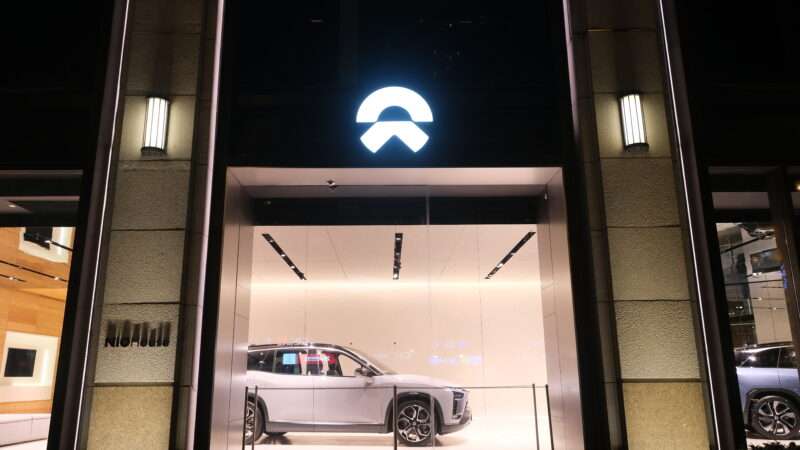
The odds are stacked against many Chinese electric vehicle (E.V.) firms. And yet they keep hanging on.
A decline in federal government subsidies, tariffs from abroad, intense price competition, and waning demand should have led to a consolidated Chinese E.V. market. But local governments have used incentives to keep half-dead E.V. firms from shuttering, and in some cases, even revived dead ones.
Such Chinese E.V. manufacturers have benefited greatly from massive industrial policy support from the government. A combination of "generous government subsidies, tax breaks, procurement contracts, and other policy incentives," as laid out in the MIT Technology Review, helped create the dominant E.V. market China has today. In just the Chinese domestic market, for example, E.V. ownership reached 13.1 million in 2022, accounting for 60 percent of global sales.
China's industry dominance, however, has raised eyebrows among many legislators in the U.S. and European Union, who see China as a threat to their manufacturing sectors. In response, China has steadily phased out many forms of subsidies. According to estimates from the Center for Strategic and International Studies (CSIS), subsidies per vehicle dropped nearly 66 percent between 2018 and 2023.
And yet most Chinese E.V. companies are still reliant on subsidies. As corporate earnings reports show, only BYD Auto has managed to make a profit.
It is difficult to measure the exact scope of local policy intervention in the E.V. market, but some localities like Shanghai, Shenzhen, and the Changping District in Beijing have created modest rebate programs ranging from 1,000 to 10,000 yuan per vehicle. And because of how difficult it can be to shut down companies in China, sometimes bribes are necessary to force a small firm to close. China is also implementing an initiative centered around creating "new productive forces" that has empowered provincial governments to revive local E.V. producers in order to expand their "high-income workforce, which can then drive consumption," according to Bloomberg.
Because many subsidies provided by the Chinese government go directly to consumers, potential middlemen like provinces have historically been excluded from access. Now, however, local governments have successfully inserted themselves into the E.V. business by setting up funds and investment vehicles to funnel money into E.V. companies.
"Depending on how they are set up, these funds and investment vehicles might take out loans from banks, sell bonds, or raise money from investors," writer and researcher G.A. Donovan, who authored a recent paper on the subject, tells Reason. "Funds from higher levels of government also trickle down to localities for all kinds of purposes."
One prominent example is the eastern city of Hefei, which invested 5 billion yuan into NIO Inc.'s E.V. business. Because of this, NIO moved its headquarters to Hefei and went from originally outsourcing production to a Hefei-based manufacturer to taking ownership of the plant and adding specialized production, research and development facilities, and expanding its subscription service for replaceable batteries, according to CSIS.
Not all of NIO's fundraising has come from local governments, as Donovan explains. Chinese firms have taken up Silicon Valley–like methods of raising capital from "capital markets, sovereign wealth funds, and private equity and venture capital investors." NIO and its peers, however, continue to bleed losses of around $6 billion, an amount that many investors deemed intolerable, causing NIO's stock price to fall more than 90 percent.
Fortunately for them, the Wuhan municipal government fund has invested over $200 million in NIO's battery management subsidiary, helping them temporarily halt the free fall.
The post Most Chinese E.V. Firms Are Unprofitable. Local Governments Keep Propping Them Up Anyway. appeared first on Reason.com.







